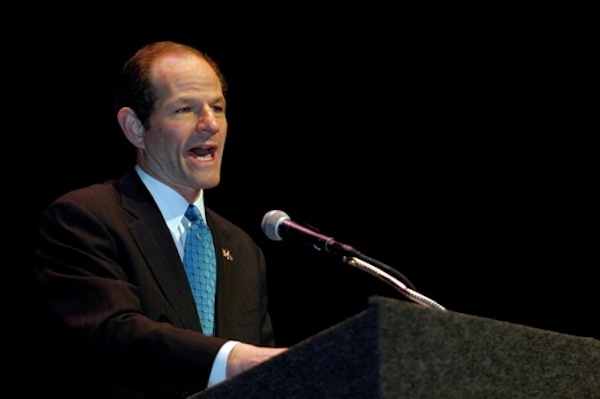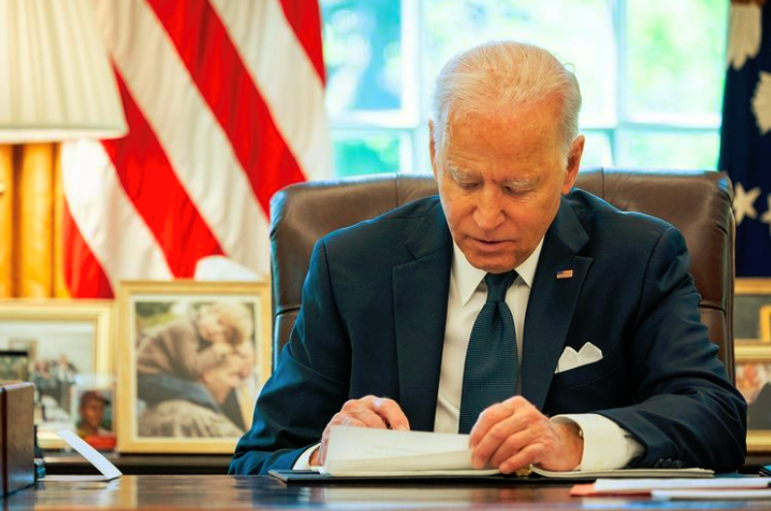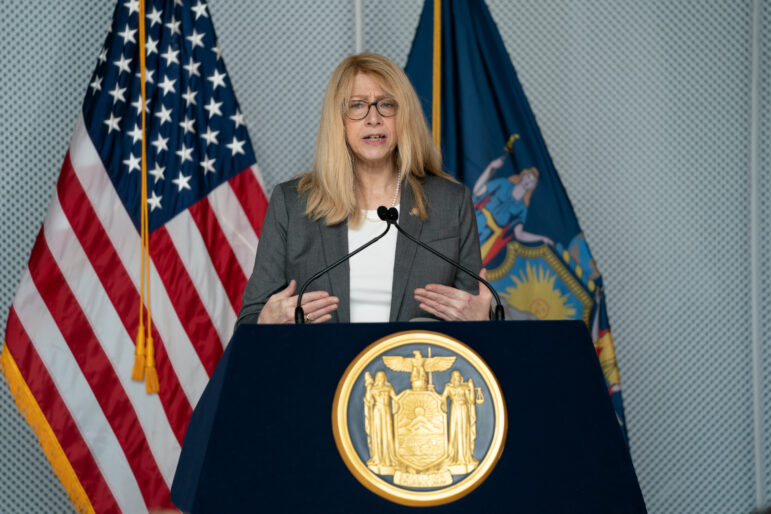
Photo by: NYGOV
According to the New York Times account of the Sunday night interview where he explained his decision to return to public life, former Gov. Eliot Spitzer “imagines transforming the comptroller’s office into a robust agency that would not merely monitor and account for city spending, as it does now, but also conduct regular inquiries into the effectiveness of government policies in areas like high school graduation rates.”
If he collects enough signatures this week to get on the ballot, the onetime Sheriff of Wall Street will have plenty of time to elaborate on his plans for the city’s No. 3 post; after all, since he plans to self-finance, he won’t have to devote any precious hours to dialing for dollars.
But so far, Spitzer’s bold vision for the comptroller’s post sounds a lot like … what the comptroller’s post already involves.
While incumbent John Liu’s chief responsibility is to monitor the city’s budgeting, spending, contracting, and investments, that suite of duties actually provides a few handy hooks for digging into policy matters.
Witness Liu’s 2011 move to block a contract related to the mayor’s Emergency Communications Transformation Project—on one hand, it was billed as a bid to protect the city’s bottom line under Liu’s responsibility to vet and register city contracts, but on the other, the move inserted the comptroller into the debate over Bloomberg’s penchant for outsourcing.
The comptroller’s power as city auditor also gives leverage, which Liu and his predecessors Bill Thompson and Alan Hevesi, to influence policy; Thompson, for one, brought a lot of scrutiny to the school system’s odd deal with Snapple.
And as the manager of the pension funds, the comptroller’s office has weighed in on climate change, gay rights, child labor and gun control.
Plus, Liu’s gone beyond that toolbox to issue reports directly on policy. Since January, the comptroller’s office has targeted the Panel of Education Policy, literacy, homeless shelters, senior housing and early childhood education.
This isn’t an homage to Liu’s time as comptroller; his predecessors did many of the same things he’s done. It’s just a wonkish point of order. Perhaps Spitzer would be better at generating headlines for this policy work than comptroller’s past, much like Mark Green’s ability to command tabloid ink made his service as public advocate seem more effective than the equally passionate, but quieter, Betsy Gotbaum.
But Spitzer’s dreams for the comptroller’s office, at least as articulated to date, don’t substantially differ from what’s been standard practice—or from what Scott Stringer, who’s shown a keen interest in policy as Manhattan Beep, would be likely to do. The Sheriff of Wall Street may be locked and loaded, but he’s not the only one packing heat.








